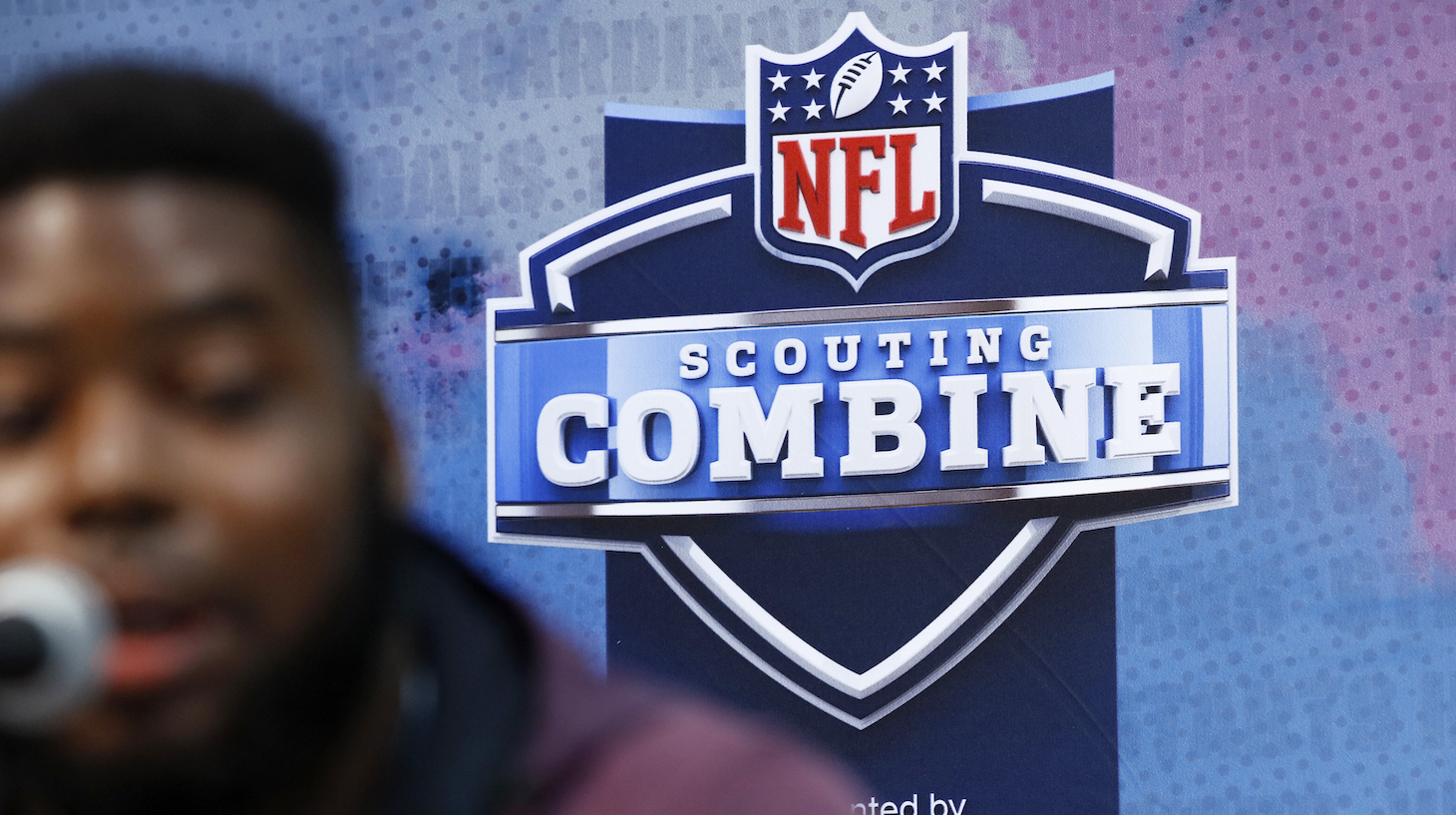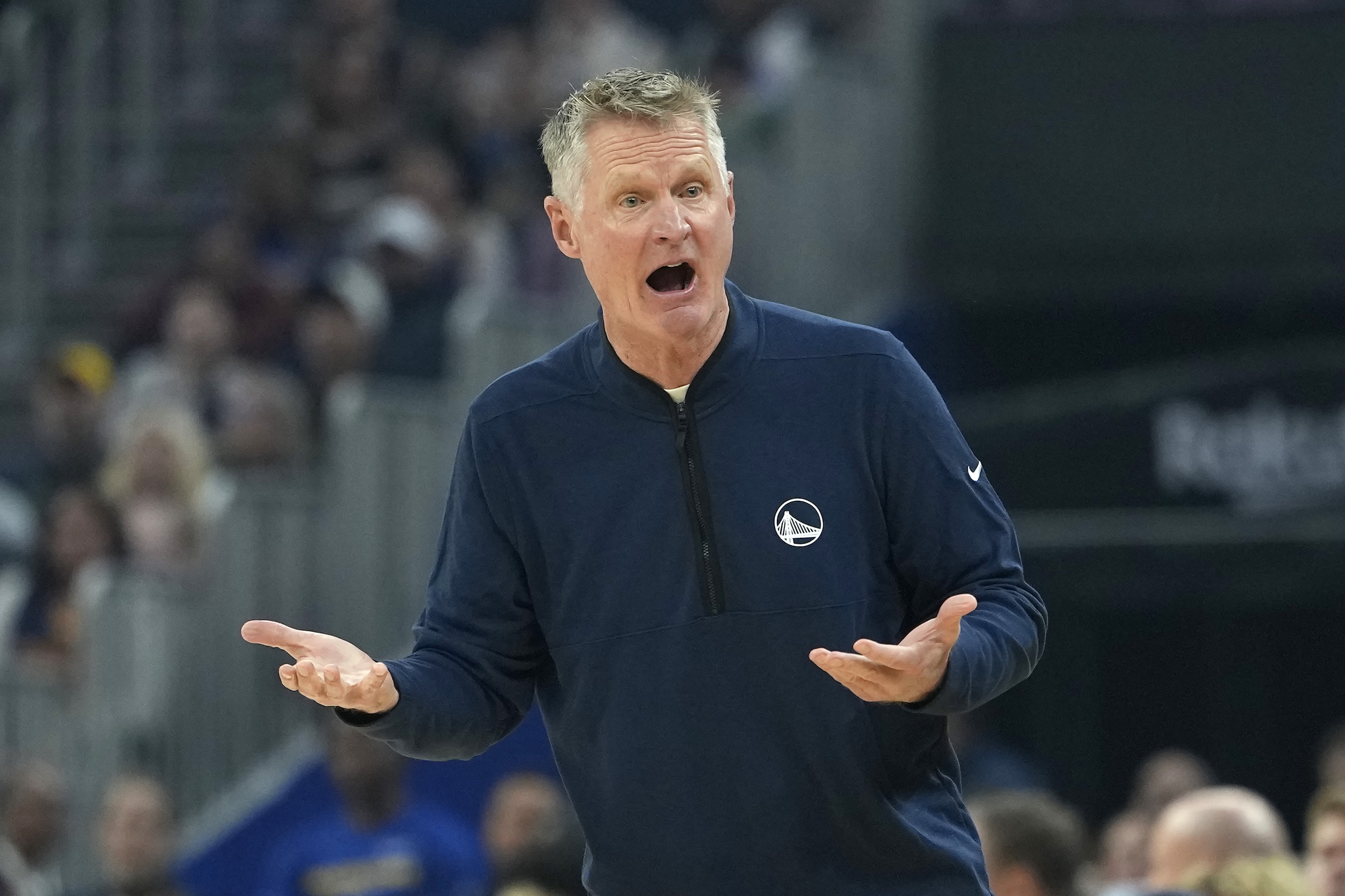INDIANAPOLIS — In January, the AP reported that the NFL planned to eliminate the infamous Wonderlic test, the 50-questions-in-12-minutes cognitive assessment that's been a staple of the combine for the last 40 years. The move made headlines because reports of leaked Wonderlic scores are one of the most predictable parts of the draft cycle, right up there along with weird fretting over hand-size measurements.
The Wonderlic was just something every prospect had to do. But this year, the NFL sent a memo that said it would no longer be requiring the test at the combine. Two agents told Defector that the league sent a second memo to teams last week that clarified that individual clubs could still request prospects take the Wonderlic, or any other cognitive assessment, but the league itself would no longer be administering it. These memos led to mass confusion and many agents, trainers and prospects thought the league meant that the Wonderlic was being phased out entirely. Headlines proclaimed, "NFL abandons Wonderlic" and "NFL to Stop Using Wonderlic Test at 2022 Combine."
That seemed long overdue. The Wonderlic has faced criticism for years for being an ineffective way to gauge a player's intelligence, one that didn't have much correlation with decision-making on the field. "Frankly, it’s been an outdated process,” Troy Vincent, the NFL's EVP of Football Operations, told the New York Times.
So I thought this story was going to be about how relieved players and agents were that the Wonderlic had finally been vanquished for good. Instead, I found that prospects are still taking the Wonderlic at this combine, and throughout this draft cycle, just as frequently as they did before.
"It's not required anymore, that's all I can say," one veteran scout told Defector.
"It felt a little bit required," said San Diego State offensive lineman Zach Thomas. Everyone else was taking it, so he felt like he couldn't say no.
"I feel if I don't take it, that would raise red flags," said Northern Iowa receiver Isaiah Weston. "So if I was asked to do it by teams, I was going to take it."
Defector interviewed five players at the combine, and four of the five had taken the Wonderlic during this draft process, either at the combine or at one of the all-star games: the Senior Bowl, East-West Shrine Bowl and NFLPA Bowl. The majority of the teams attending the Senior Bowl requested that players take the Wonderlic, so it was part of the registration process when players arrived in Mobile.
The fifth player Defector spoke to, Kentucky offensive lineman Dare Rosenthal, seemed unsure if he should even tell me. "I don't know," he said, hesitating, before answering fully. "I maybe have to take it later today but I haven't taken it yet."
The league office may be trying to phase out the test in an effort to encourage teams to find better ways to evaluate players, but the teams themselves are resistant to change, as they usually are. "It was not received well by teams to say the least," said one veteran scout.
The confusion has been rampant here in Indianapolis. One scout told Defector that his team hadn't requested the Wonderlic from prospects, but they still received 200-something scores, from another team who had requested those players take the exam. That team shared them under the assumption that everyone else still wants these scores.
On Thursday morning, Thomas received a message via his TeamWorks app telling him he needed to take the test, so the scout who leads his group of offensive linemen took him to a room at 8:30 a.m. and Thomas sat down with a pen and the paper booklet to take the test. He said he thinks it went well, despite the fact he didn't prepare for it. "I showed up to training and they were telling us that they originally planned on training us to do the Wonderlic and that they were no longer doing it, so they ended up not teaching us really anything for the Wonderlic," Thomas said.
"I really thought I was going to make it out of here not having to do it," Thomas continued. "I didn't practice for it or anything."
A veteran NFL agent told Defector that to his surprise, one of his players was told he had to take the Wonderlic at this year's combine. "They're making players take the Wonderlic here," he said in a text. "It’s complete BS how they’re doing it. Bait n' switch. Nice job NFL."
Defector asked six general managers what they thought of the Wonderlic, and the reviews were mixed. Football people love their data, even if it's bad or meaningless data.
Vikings GM Kwesi Adofo-Mensah: "I'm a data guy, so I don’t ever want you to remove data from our data sets. I want to add, never take away. But the NFL, the Wonderlic, is interesting. They actually gave it to use when we went to San Francisco and were applying for jobs, but it’s a reasoning test. I don’t know that it necessarily is correlated to what happens on the field. It’s pattern recognition and things like that. So I do think some of the new tests that have come out are pretty good. The Wonderlic is not a bad test and also probably just shows some level of preparation and care, no different from anything else."
Cardinals GM Steve Keim: "The Wonderlic was a measuring stick. You knew the numbers, but it always wasn't indicative because there were a number of players that didn't do well on it that were always really smart, heady football players. Then there were guys that were sort of like robots, the guys that scored 37 or 40 and they were mechanical football players that didn't naturally see [the game]. It's not always indicative, same with standardized testing I guess, but there are some different things that we can do from a processing standpoint internally."
Browns GM Andrew Berry: "We thought the Wonderlic was outdated. That's not something that really held a lot of weight for us."
Lions GM Brad Holmes: "The Wonderlic, I always thought it was a good resource to utilize, especially when you are trying to figure out players' ability to absorb information and retain information. It's not the end-all be-all, but I thought it was a very helpful tool and a very helpful resource. There are a lot of other resources that you can utilize, but then with the Wonderlic, how are you using it? It's that one digit score that everybody was looking at, but it's like ok well, what's that one digit score off of how many [questions] were attempted in that time frame? So, you can find out a lot the deeper you dive within that Wonderlic, but there are a lot of other tests out there that we utilize, that I'll keep in house, that can be as good, if not better."
Panthers GM Scott Fitterer: "It's been a comfort factor more than anything, but it really doesn't measure a person's intelligence or processing and other aspects of learning, so we can actually be better off digging into the player and finding out how they learn in other ways other than the Wonderlic."
Niners GM John Lynch: "I wish they had done this in 1993 before I took it, but we still, long before I got there, will give it to scouting assistants when they come in, just kind of for fun. But you know you have to be adaptable, you have to be malleable to what is going on and the NFL made a decision to do that. More than anything you use that to have historic data on that. Is it always transferable to football? No. Warren Sapp used to say, we are not sending rockets to the moon, we're playing football here. So we need people with good football intelligence. So how can you measure that? I think everyone is trying to find that secret sauce and the answer is usually in the tape. It's usually in talking to coaches and players who have been around these kids. It's not about a test, so I think we will be fine, but it is another tool that you have 15–20 years worth of data that you can compare, is there any correlation? And that kind of goes out the door unless you choose to use it yourself. And I think every organization will make that decision."
None of the general managers would reveal what other types of testing they use, but rest assured that there is an entire cottage industry dedicated to fleecing NFL teams in the name of finding an edge.
"We pay too much money for it [to reveal what we use]," Keim told me.
"There are a lot of other tests out there that we utilize, that I'll keep in house, that can be as good, if not better," Holmes said.
Zach Thomas has already taken "four or five" different cognitive assessments this draft season, and Andrew Rupcich, another offensive lineman in his group, estimated he's taken five or six so far. "I just don't really want to say no to anything," Thomas said. "Just trying to get through them all and do what I can."
Representatives from each testing company reach out to agents or players directly to schedule a time for them to take it. The veteran NFL agent represents an early-round prospect who did not take all the tests he was asked to this draft season. One testing company texted to request the player take that exam and lightly threaten him with what might happen if he didn't: "Failure to complete this may affect your draft status."

The veteran scout said the league is trying to phase out all of the sundry cognitive assessment tests out there, but he thinks the Wonderlic still has worth.
"I think outsiders have a huge misperception of how teams value it," the veteran scout said. "If a guy has a lower score it’s not like he gets labeled as a dummy and cast aside. All it does is make teams keep digging on the mental and learning side. I’ve seen plenty of single-digit scores where football makes great sense to them and 30+ scores that just don’t get football as much and you can’t move them around. In the long run, it actually helps guys who struggle more because with the Wonderlic, teams actually know that and can get ahead of it. They can get prepared to support that player’s individual learning needs. The new rule would be change for changes sake in my opinion. No need for it."
As for the prospects, most said they didn't see how these cognitive tests had any correlation to their future jobs on the football field.
"I think it's unrelated to football intelligence," Thomas said.
"I feel like they only go so far," Weston said. "You can have fast reaction times [in the tests] and get on the field and the dynamics in the NFL are different. The Wonderlic just felt like the ACT for me, the quick-thinking stuff, I feel like it is outdated."
Though the NFL would appear to agree, it's hesitant to bring the hammer down. The New York Times reported that the league could still fully ban the test next year, but this year decided to let teams request it themselves if they still wanted to. “We didn’t want to be too disruptive,” Vincent told the Times.
And so, one of the tiredest draft traditions rolls on:
From NFL Now: On the QB interviews, how Desmond Ridder and Malik Willis have both stood out and why Willis' brain (with an impressive 32 on the Wonderlic Test) has made an impression. pic.twitter.com/YbMsFJfJzT
— Ian Rapoport (@RapSheet) March 3, 2022
The combine is back, and Wonderlic scores are already getting leaked. It's business as usual in the NFL.






